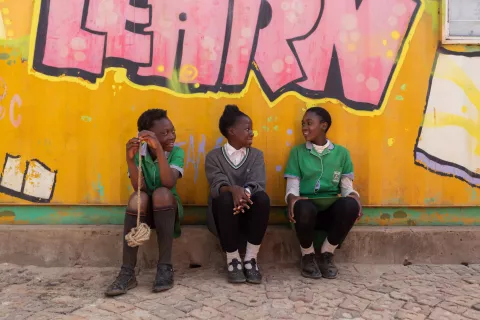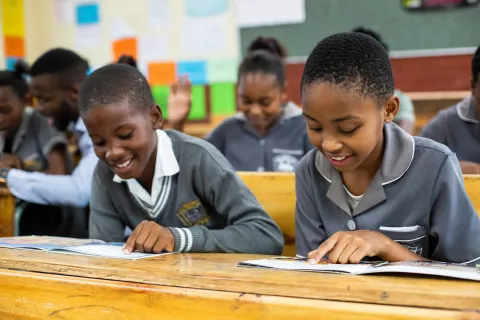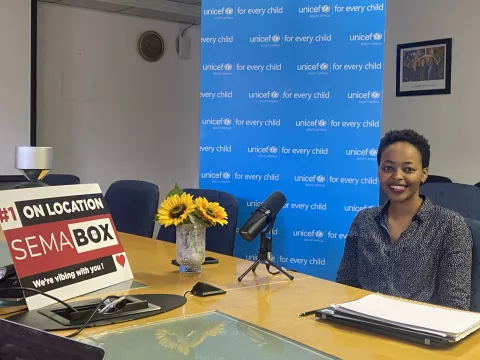Germany contributes USD$4.9 million to bolster UNICEF’s support to COVID-19 vaccine roll-out in South Africa
Resources provided by the German Federal Foreign Office will accelerate efforts to vaccinate 70 per cent of the population by the end of 2022 and strengthen childhood immunization work.

PRETORIA, 13 July 2022 – UNICEF South Africa is set to further expand its support to the COVID-19 vaccination roll-out in South Africa thanks to a new commitment of USD$4.9 million from Germany’s Federal Foreign Office.
The resources will strengthen cold chain management and systems, as well as communication and community engagement work, led by the National and Provincial Departments of Health, to bolster COVID-19 and routine childhood immunization coverage. This includes a focus on the 32 districts with the lowest COVID-19 vaccine coverage across the country.
“Germany is committed to supporting South Africa, as part of our Last Mile Initiative, to further strengthen its immunization work, including to reach the 70 per cent COVID-19 vaccination coverage target,” said Acting Head of Mission of the German Embassy Pretoria, Rüdiger Lotz. “Impressive progress has been made, but we need to maintain momentum, through an effective and efficient vaccination roll-out, to ensure that as many people as possible are protected from the virus,” he added.
The COVID-19 pandemic in South Africa has taken the lives nearly 102,000 people, devastating families, and livelihoods. South Africa’s vaccination rate currently stands at almost 51 per cent of the adult population, while the figure drops to 37 per cent for young people aged 18-34-years.
“This generous support from the Government of Germany is essential to protect as many people as possible from severe illness and death,” said Christine Muhigana, UNICEF Representative to South Africa. “Children’s lives have been devastated by the pandemic, as they’ve lost family members and had every part of their childhoods disrupted, from play to education,” added Muhigana.
The German resources will support equipment procurement, electronic inventory roll-out, and vaccine management training for frontline vaccinators and logistics personnel, in-turn significantly improving the national immunization system. In addition, the funding will bolster demand generation activities to understand and tackle the remaining barriers to COVID-19 vaccine uptake and encourage people to take the shot.
The German funded work is being implemented through UNICEF South Africa, working with the National and Provincial Departments of Health, and other partners.
Since the beginning of the pandemic, Germany has supported South Africa with medical goods and committed more than 200 million EUROs towards the development and strengthening of local vaccine production capacities.
Media contacts
About UNICEF
UNICEF promotes the rights and wellbeing of every child, in everything we do. Together with our partners, we work in over 190 countries and territories to translate that commitment into practical action, focusing special efforts on reaching the most vulnerable and excluded children everywhere.
Working with a range of partners, UNICEF has had a presence in South Africa since the end of apartheid and continues to work towards bettering the lives of all children in the country.
Follow UNICEF South Africa on Twitter, Facebook and Instagram




